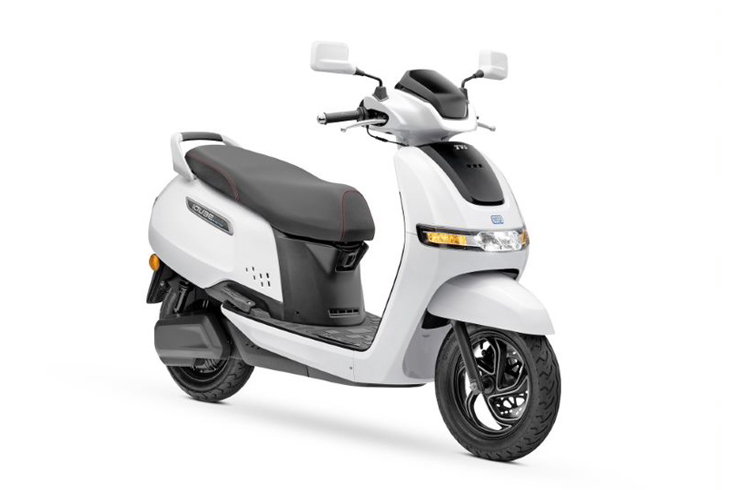Companies to collaborate on electric two-wheeler charging eco-systemacross the country
TVS Motor Company, one of the leading manufacturers of two-wheelers and three-wheelers globally, has entered into a strategic partnership with Tata Power, one of India’s largest integrated power companies. As part of the MoU, the two companies have agreed to drive the comprehensive implementation of Electric Vehicle Charging Infrastructure (EVCI) across India and deploy solar power technologies at TVS Motor locations.

The partnership aims to create a large dedicated electric two-wheeler charging infrastructure to accelerate electric mobility in India. This will also give the customers of TVS iQube Electric access to the widespread charging network by Tata Power through the TVS Motor customer connect app and Tata Power EZ Charge app across India. The partnership aims to create a regular AC charging network and a DC fast-charging network for electric two-wheelers. This partnership will further help drive EV adoption in the country among two-wheeler customers who aspire to take a step in going electric.
With increasing concerns about global climate change developments, solar energy will play an important role going forward.Expanding technologies in solar energy will play a vital role in the shift towards clean energy adoption by consumers. With this intent, the two companies will also explore opportunities to use solar energy to power select TVS Motor locations in their journey towards sustainability.
“TVS Motor Company has always been at the forefront of delivering green vehicles to our customers. This collaboration with Tata Power marks yet another significant milestone towards enabling a greener future for the country. Our partnership will substantially enhance customer convenience through world-classfast-charging solutions. TVS Motor is extremely excited and proud to be the pioneering partner with Tata Power, which is leading the way in creating a wide and sustainable charging infrastructure in the country. Fitting to TVS Motor vision of electrification, we envisage a wide and reliable charging infrastructure for two and three-wheeler EV customers across India, powered by renewable sources of energy such as solar”, Mr. Sudarshan Venu. Joint Managing Director, TVS Motor Company.
“We are happy to join hands with TVS Motor, one of the leading two-wheeler manufacturers globally, to become their EV charging partner.Through this collaboration, we will further leverage our expertise to enhance synergy between sustainable mobility and renewable energy integration resulting in the creation of robust EV charging eco-system across India.” -said, Dr Praveer Sinha, CEO & MD, Tata Power.
The company’s MoU with Tata Power is in line with its commitment to expanding the presence of TVS iQube Electric in over 25 cities within the next few months.The electric scooter is presently available in Delhi, Bangalore, Chennai, Pune, Kochi, Coimbatore, Hyderabad, Surat, Vizag, Jaipur, and Ahmedabad.
Tata Power has an expansive network of over 5,000 home chargers and over 700 public chargers in more than 120 cities in India.The company is present across all segments of the EV eco-system– public charging, captive charging, home and workplace charging stations, and has deployed all types of chargers, including DC chargers and AC Chargers.It also comes with a successful background of executing multiple large solar solutions, including the world’s largest rooftop (16MW) at a single location at Radhasoami Satsang Beas (RSSB), Amritsar; India’s largest grid-synchronized, 6.2MWp solar carport at the Tata Motors car plant in Chikhali, Pune. World’s largest solar-powered cricket stadium-Cricket Club of India (CCI) with 820.8 kW capacity; unique installation of a solar vertical farm (120kW) at Dell Technologies. In addition, Tata Power is carrying out an extensive pan-India residential rooftop program in more than 100 cities to make people aware of the benefits of savings through solar energy.





